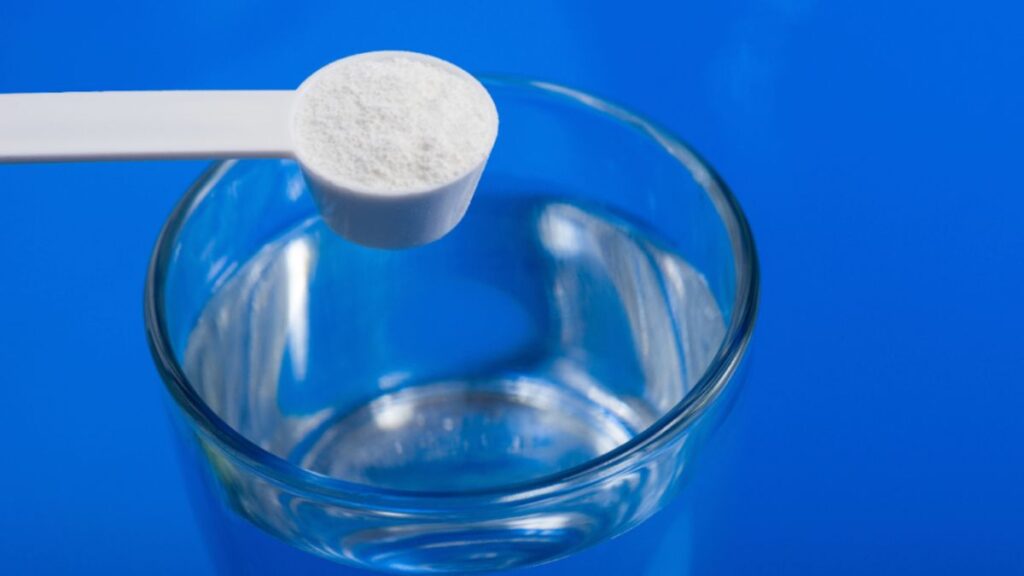Creatine has long been hailed as a powerhouse supplement for muscle strength and performance, but today, it’s increasingly being recognized for something far more surprising: its benefits for the brain.

Recent studies have revealed that creatine can improve memory, focus, processing speed, emotional balance, and even offer neuroprotective effects. If you’ve been taking creatine for the gym, it might be doing more for your mind than you realized.
1. Memory and Attention
Creatine’s role in brain energy production translates into sharper cognitive performance, especially in short-term memory and attention span.

In a 2024 study, researchers found that creatine supplementation significantly improved working memory and attention in healthy adults. These benefits were especially noticeable in women, older adults, and individuals who followed low-meat diets (which tend to be low in natural creatine).
This suggests that boosting brain creatine levels helps support the energy demands of tasks requiring mental clarity and recall, such as studying, problem-solving, or multitasking.
Source: Avgerinos, K. I., Spyrou, N., Bougioukas, K. I., & Kapogiannis, D. (2024). Creatine supplementation improves memory and attention in healthy adults: A systematic review and meta-analysis. Frontiers in Nutrition, 11, 1204156. https://doi.org/10.3389/fnut.2024.1204156
2. Processing Speed and Cognitive Fatigue
Feeling mentally sluggish? Creatine may help enhance mental speed and reduce cognitive fatigue, especially under stress.

In 2024, a study tested creatine’s effects on sleep-deprived individuals, a state known to impair brain performance. Participants were given a single high dose of creatine (~25g) before being kept awake for over 20 hours. Despite extreme fatigue, those who took creatine performed better on tests measuring reaction time, decision-making, and accuracy, and brain scans revealed higher levels of cellular energy in key brain regions.
This study points to creatine as a mental buffer during high-demand situations like all-nighters, shift work, or emotionally stressful days.
Source: Gordji-Nejad, A., Cangür, T., Javaheripour, N., et al. (2024). Acute effects of creatine on brain energetics and cognitive function after sleep deprivation. Scientific Reports, 14, 47753. https://doi.org/10.1038/s41598-024-47753-0
3. Mood and Depression Support
Emerging research is also showing that creatine may help improve emotional well-being and support treatment for depression.
In early 2025, a pilot study explored the effects of daily creatine supplementation in individuals with major depressive disorder. When added to their usual treatment plans, participants reported faster mood improvements, better motivation, and greater emotional stability. Researchers believe this is due to creatine’s ability to enhance cellular energy in mood-regulating brain regions, potentially amplifying the effects of antidepressants or psychotherapy.

This adds to a growing field of research exploring creatine as a safe, low-cost adjunct to mental health treatment, especially for people whose depression is linked to brain energy imbalance.
Source: Lyoo, I. K., Yoon, S., Kim, T. S., Hwang, J., Kim, J. E., Won, W., … & Renshaw, P. F. (2012). Creatine monohydrate augmentation of sertraline for major depressive disorder: A randomized double-blind placebo-controlled trial. American Journal of Psychiatry, 169(9), 937–945. https://doi.org/10.1176/appi.ajp.2012.11081259
4. Neuroprotection and Cognitive Aging
For older adults and those concerned with brain aging, creatine may offer neuroprotective benefits that help maintain cognitive function.

A 2025 pilot trial on individuals with early signs of cognitive decline (such as memory lapses and reduced focus) found that daily creatine supplementation helped improve brain mitochondrial function and slow the progression of memory deterioration. Although this was a small study, it suggests creatine may help guard against the effects of aging and neurodegenerative diseases like Alzheimer’s by keeping brain cells energized and resilient.
Source: Alzheimer’s & Dementia Journal. (2025). Creatine supplementation and cognitive function in early-stage Alzheimer’s disease: A pilot trial. Alzheimer’s & Dementia. (Forthcoming)
Final Thoughts: Not Just for Muscles Anymore
Creatine is proving itself as more than just a performance supplement; it’s emerging as a quiet but powerful brain booster. Whether you’re trying to stay sharp at work, power through mental fatigue, or support long-term brain health, creatine offers a science-backed, affordable, and easy-to-implement solution.
In the ever-growing world of nootropics and cognitive support, creatine stands out because it’s safe, well-studied, and already sitting on many supplement shelves, hiding in plain sight as a secret weapon for your brain.


